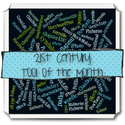-
About
- About Listly
- Community & Support
- Howto
- Chrome Extension
- Bookmarklet
- WordPress Plugin
- Listly Premium
- Privacy
- Terms
- DMCA Copyright
- © 2010-2025 Boomy Labs

 Emily Stout
Emily Stout
Listly by Emily Stout
Citizen science allows students to make authentic contributions to real-world research. Check out these resources that allow students to do hands-on, real-world research, and please keep adding to the list!
Global citizen-science community for real-world research
Pros:
Students can collect data about species diversity as citizen scientists.
Cons:
The site is missing opportunities for teens to use the data they collect to see the importance of biodiversity.
Bottom Line:
Teens can do hands-on nature research, but in a limited way.
Contribute kid research to stellar crowdsourced field guide
Pros:
Kids can see they're making a real-world impact; missions support authentic learning.
Cons:
The depth and accuracy of user-generated content varies, and there are some privacy concerns.
Bottom Line:
An outstanding resource that makes science relevant with lots of classroom potential.
Solid citizen-science site with good extension projects
Pros:
Project Squirrel lets kids be part of an actual research project in their own backyards.
Cons:
Unless you're part of the Greater Chicago Area, your data isn't included in the research team's conclusions.
Bottom Line:
This online, collaborative science project is a solid resource for making data collection relevant to kids.
Kids match sound bites of whale talk on basic, crowdsourced site
Pros:
Kids love whales and authentic tasks; use both to connect them with this real, citizen science project.
Cons:
Making a match can sometimes challenge or frustrate; kids may feel uneasy as the site doesn't offer feedback.
Bottom Line:
Though limited in scope, it's a fun and genuine way to plug kids into the real world of scientific data analysis.
What's It Like? Journey North is a free website that helps kids record and share observations about seasonal change. These observations vary from the length of a day to a flower blooming or the presence of a butterfly. Resources are available to help kids figure out their longitude and latitude so they can include it with their observations.
Pros:
Journey North moves beyond other citizen science websites because it helps kids do more than just upload pictures -- they actually get to ask questions and form conclusions.
Cons:
Without a teacher dashboard, teachers can't track progress of their class online.
Bottom Line:
Extensive resources can help kids collect, share, and analyze evidence about seasonal change.
What's It Like? Presented in a breezy Japanese anime style, Citizen Science invites players to think about the delicate interplay of science and public interest. The game starts with a strange tale of time travel, and then tasks the player with saving a lake from the varied interests of environmental protestors, farmers, fishermen, and local homeowners.
Pros:
Authentically mixes science and the humanities.
Cons:
Ends just when subjects/issues reach the complexity they deserve.
Bottom Line:
A polished introduction to the interaction between science and politics that's a bit linear but gets students gathering and using evidence.
What's It Like? Project Noah is a vehicle for kids to share their nature explorations. It can be used by anyone from elementary school students to seasoned scientists to collect data about species diversity. Users share images and the locations of organisms they've spotted.
Pros:
This is a real opportunity for students to gather and share information about biodiversity.
Cons:
Additional extension activities would allow kids to do more with the collected data.
Bottom Line:
Project Noah is a free and easy way to take part in biodiversity research with the support of a knowledgeable and global community.
What's It Like? Scientific experimentation and investigation are the focus of Lawrence Hall of Science: 24/7 Science, the kids' section of a science site created by the University of California, Berkeley. Young learners will find instructions on experiments they can conduct offline as well as games that teach scientific fundamentals, like measurement and comparing the properties of different substances.
Pros:
Both the lab investigations and the online simulations are high-quality and easy to complete.
Cons:
You can't search for activities by topic or ability level.
Bottom Line:
These well-designed and highly educational activities challenge and engage kids in all the right ways.
